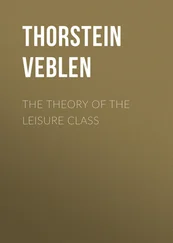Thorstein Veblen - An Inquiry into the Nature of Peace and the Terms of Its Perpetuation
Здесь есть возможность читать онлайн «Thorstein Veblen - An Inquiry into the Nature of Peace and the Terms of Its Perpetuation» — ознакомительный отрывок электронной книги совершенно бесплатно, а после прочтения отрывка купить полную версию. В некоторых случаях можно слушать аудио, скачать через торрент в формате fb2 и присутствует краткое содержание. Жанр: foreign_antique, Политика, Юриспруденция, foreign_edu, на английском языке. Описание произведения, (предисловие) а так же отзывы посетителей доступны на портале библиотеки ЛибКат.
- Название:An Inquiry into the Nature of Peace and the Terms of Its Perpetuation
- Автор:
- Жанр:
- Год:неизвестен
- ISBN:нет данных
- Рейтинг книги:5 / 5. Голосов: 1
-
Избранное:Добавить в избранное
- Отзывы:
-
Ваша оценка:
- 100
- 1
- 2
- 3
- 4
- 5
An Inquiry into the Nature of Peace and the Terms of Its Perpetuation: краткое содержание, описание и аннотация
Предлагаем к чтению аннотацию, описание, краткое содержание или предисловие (зависит от того, что написал сам автор книги «An Inquiry into the Nature of Peace and the Terms of Its Perpetuation»). Если вы не нашли необходимую информацию о книге — напишите в комментариях, мы постараемся отыскать её.
An Inquiry into the Nature of Peace and the Terms of Its Perpetuation — читать онлайн ознакомительный отрывок
Ниже представлен текст книги, разбитый по страницам. Система сохранения места последней прочитанной страницы, позволяет с удобством читать онлайн бесплатно книгу «An Inquiry into the Nature of Peace and the Terms of Its Perpetuation», без необходимости каждый раз заново искать на чём Вы остановились. Поставьте закладку, и сможете в любой момент перейти на страницу, на которой закончили чтение.
Интервал:
Закладка:
With some gift for casuistry one may, at least conceivably, hold that the felt need of Imperial self-aggrandisement may become so urgent as to justify, or at least to condone, forcible dispossession of weaker nationalities. This might, indeed it has, become a sufficiently perplexing question of casuistry, both as touches the punctilios of national honour and as regards an equitable division between rival Powers in respect of the material means of mastery. So in private life it may become a moot question—in point of equity—whether the craving of a kleptomaniac may not on occasion rise to such an intolerable pitch of avidity as to justify him in seizing whatever valuables he can safely lay hands on, to ease the discomfort of ungratified desire. In private life any such endeavour to better oneself at one's neighbors' cost is not commonly reprobated if it takes effect on a decently large scale and shrewdly within the flexibilities of the law or with the connivance of its officers. Governing international endeavours of this class there is no law so inflexible that it can not be conveniently made over to fit particular circumstances. And in the absence of law the felt need of a formal justification will necessarily appeal to the unformulated equities of the case, with some such outcome as alluded to above. All that, of course, is for the diplomatists to take care of.
But any speculation on the equities involved in the projected course of empire to which these two enterprising nations are committing themselves must run within the lines of diplomatic parable, and will have none but a speculative interest. It is not a matter of equity. Accepting the situation as it stands, it is evident that any peace can only have a qualified meaning, in the sense of armistice, so long as there is opportunity for national enterprise of the character on which these two enterprising national establishments are bent, and so long as these and the like national establishments remain. So, taking the peaceable professions of their spokesmen at a discount of one hundred percent, as one necessarily must, and looking to the circumstantial evidence of the case, it is abundantly plain that at least these two imperial Powers may be counted on consistently to manoeuvre for warlike advantage so long as any peace compact holds, and to break the peace so soon as the strategy of Imperial enterprise appears to require it.
There has been much courteous make-believe of amiable and upright solicitude on this head the past few years, both in diplomatic intercourse and among men out of doors; and since make-believe is a matter of course in diplomatic intercourse it is right and seemly, of course, that no overt recognition of unavowed facts should be allowed to traverse this run of make-believe within the precincts of diplomatic intercourse. But in any ingenuous inquiry into the nature of peace and the conditions of its maintenance there can be no harm in conveniently leaving the diplomatic make-believe on one side and looking to the circumstances that condition the case, rather than to the formal professions designed to mask the circumstances.
Chief among the relevant circumstances in the current situation are the imperial designs of Germany and Japan. These two national establishments are very much alike. So much so that for the present purpose a single line of analysis will passably cover both cases. The same line of analysis will also apply, with slight adaptation, to more than one of the other Powers, or near-Powers, of the modern world; but in so far as such is held to be the case, that is not a consideration that weakens the argument as applied to these two, which are to be taken as the consummate type-form of a species of national establishments. They are, between them, the best instance there is of what may be called a Dynastic State.
Except as a possible corrective of internal disorders and discontent, neither of the two States "desires" war; but both are bent on dominion, and as the dominion aimed at is not to be had except by fighting for it, both in effect are incorrigibly bent on warlike enterprise. And in neither case will considerations of equity, humanity, decency, veracity, or the common good be allowed to trouble the quest of dominion. As lies in the nature of the dynastic State, imperial dominion, in the ambitions of both, is beyond price; so that no cost is too high so long as ultimate success attends the imperial enterprise. So much is commonplace knowledge among all men who are at all conversant with the facts.
To anyone who harbors a lively sentimental prejudice for or against either or both of the two nations so spoken of, or for or against the manner of imperial enterprise to which both are committed, it may seem that what has just been said of them and their relation to the world's peace runs on something of a bias and conveys something of dispraise and reprobation. Such is not the intention, however, though the appearance is scarcely to be avoided. It is necessary for the purposes of the argument unambiguously to recognise the nature of these facts with which the inquiry is concerned; and any plain characterisation of the facts will unavoidably carry a fringe of suggestions of this character, because current speech is adapted for their reprobation. The point aimed at is not this inflection of approval or disapproval. The facts are to be taken impersonally for what they are worth in their causal bearing on the chance of peace or war; not at their sentimental value as traits of conduct to be appraised in point of their goodness or expediency.
So seen without prejudice, then, if that may be, this Imperial enterprise of these two Powers is to be rated as the chief circumstance bearing on the chances of peace and conditioning the terms on which any peace plan must be drawn. Evidently, in the presence of these two Imperial Powers any peace compact will be in a precarious case; equally so whether either or both of them are parties to such compact or not. No engagement binds a dynastic statesman in case it turns out not to further the dynastic enterprise. The question then recurs: How may peace be maintained within the horizon of German or Japanese ambitions? There are two obvious alternatives, neither of which promises an easy way out of the quandary in which the world's peace is placed by their presence: Submission to their dominion, or Elimination of these two Powers. Either alternative would offer a sufficiently deterrent outlook, and yet any project for devising some middle course of conciliation and amicable settlement, which shall be practicable and yet serve the turn, scarcely has anything better to promise. The several nations now engaged on a war with the greater of these Imperial Powers hold to a design of elimination, as being the only measure that merits hopeful consideration. The Imperial Power in distress bespeaks peace and good-will.
Those advocates, whatever their nationality, who speak for negotiation with a view to a peace compact which is to embrace these States intact, are aiming, in effect, to put things in train for ultimate submission to the mastery of these Imperial Powers. In these premises an amicable settlement and a compact of perpetual peace will necessarily be equivalent to arranging a period of recuperation and recruiting for a new onset of dynastic enterprise. For, in the nature of the case, no compact binds the dynastic statesman, and no consideration other than the pursuit of Imperial dominion commands his attention.
There is, of course, no intention to decry this single-mindedness that is habitually put in evidence by the dynastic statesmen. Nor should it be taken as evidence of moral obliquity in them. It is rather the result of a peculiar moral attitude or bent, habitual to such statesmen, and in its degree also habitual to their compatriots, and is indispensably involved in the Imperial frame of mind. The consummation of Imperial mastery being the highest and ubiquitously ulterior end of all endeavour, its pursuit not only relieves its votaries from the observance of any minor obligations that run counter to its needs, but it also imposes a moral obligation to make the most of any opportunity for profitable deceit and chicanery that may offer. In short, the dynastic statesman is under the governance of a higher morality, binding him to the service of his nation's ambition—or in point of fact, to the personal service of his dynastic master—to which it is his dutiful privilege loyally to devote all his powers of force and fraud.
Читать дальшеИнтервал:
Закладка:
Похожие книги на «An Inquiry into the Nature of Peace and the Terms of Its Perpetuation»
Представляем Вашему вниманию похожие книги на «An Inquiry into the Nature of Peace and the Terms of Its Perpetuation» списком для выбора. Мы отобрали схожую по названию и смыслу литературу в надежде предоставить читателям больше вариантов отыскать новые, интересные, ещё непрочитанные произведения.
Обсуждение, отзывы о книге «An Inquiry into the Nature of Peace and the Terms of Its Perpetuation» и просто собственные мнения читателей. Оставьте ваши комментарии, напишите, что Вы думаете о произведении, его смысле или главных героях. Укажите что конкретно понравилось, а что нет, и почему Вы так считаете.












